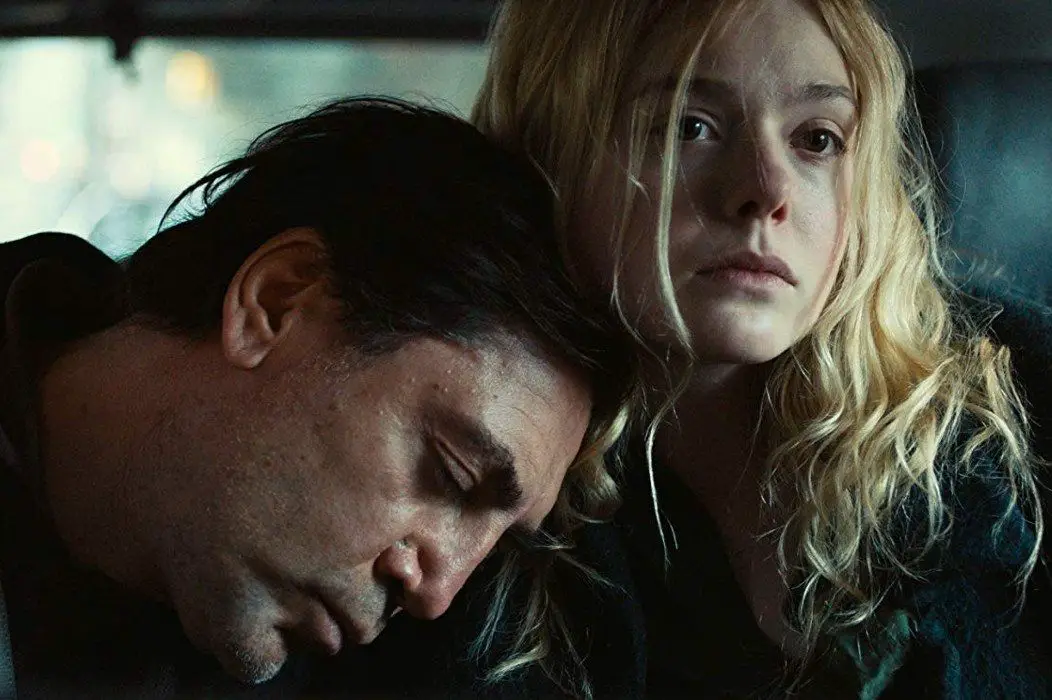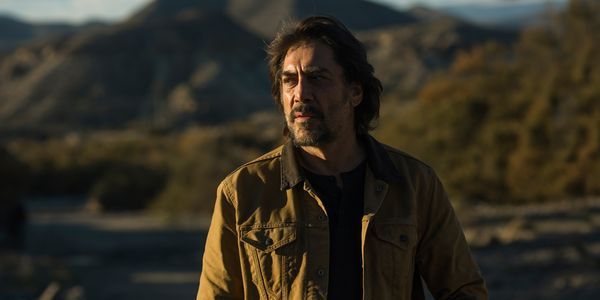Berlinale 2020: THE ROADS NOT TAKEN

Wilson is a cinema enthusiast based out of Toronto, Canada.…
With all his might and vigour, Javier Bardem tries his best to not overact in his portrayal of a middle-aged man suffering from debilitating dementia in Sally Porter’s The Roads Not Taken. For the most part, he succeeds thanks to a superb acting partner in the form of one Elle Fanning. The film itself is far from perfect, but a thoughtfully touching father-daughter relationship between Bardem and Fanning helps steer it in the right direction.
After being diagnosed with frontal lobe variant of dementia, the once verbally affluent writer, Leo (Bardem), has been reduced to a deflated shell of his former self. He lives his days with aimless incoherence as his daughter Molly (Fanning) hangs onto any fleeting remnants of the father she once knew. The Roads Not Taken jumps back and forth between timelines to illustrate Leo’s wandering mind as he pieces together both his past and present. Through these jumps, the film also features appearances by Salma Hayek and Laura Linney.
Technical ups and downs
It’s unfortunate that the film’s primary narrative device is also one of its biggest flaws. Potter’s use of intermittent flashbacks is done for obvious reasons, but the actual timeline of each jump is frustratingly difficult to follow. Even Bardem’s hairstyle and age profile seem to be constant throughout every timeline. And perhaps Potter did this on purpose as a way of muddling the audience’s mind to the disjointedness of Leo’s. But in a film where the narrative timeline actually bears some meaning to understanding the overall story, it becomes more of an unnecessary distraction.

On a technical level, the film is shot quite beautifully and creates a tonally life-like depiction of New York City. The gloomy mornings and ambient nights are presented with precision by Robbie Ryan, who also showed a visually distinct appreciation for the city with Marriage Story last year. Potter’s score for the film also works nicely in the background, creating the right level of ambiance without ever really taking over. And for the reasons mentioned already, it’s hard to marvel at the film’s editing given its structural challenges.
Elle Fanning, the saving grace
But the real saving grace of this film comes from the nuanced father-daughter relationship between Leo and Molly. Ever since she starred in Sofia Coppola’s Somewhere in 2010, Fanning has had a streak of impressively commanding performances over the past decade. She continues that trend in The Roads Not Taken, and yields a sense of naturalism and purity that actually makes the film relatable on an emotional level.

Bardem does what he can with a somewhat isolating and caricature portrayal that was probably already written into the film’s screenplay. Fanning grounds the film not only through her own thoughtful performance of Molly, but by also channeling some of that energy to humanize Leo’s chaotic characterization. Every scene they share with each other is accompanied by sentiments ranging from joy and laughter, to pain and devastation. It’s the only reason why the film isn’t a complete melodramatic mess, and instead, feels poignantly genuine.
Following the alternative road
In all likelihood, The Roads Not Taken won’t be a film that connects with everyone. Its structural flaws will probably deter many from grasping the film’s more sentimental impressions, and many will be left flubbing at its seemingly caricature dramatization of a demented man. But if you buy into Potter’s tender realization of the bond between a father and daughter, the film takes you down an alternative road. One that is surprisingly immersive and punctuated with many emotional beats along the way.
Does content like this matter to you?
Become a Member and support film journalism. Unlock access to all of Film Inquiry`s great articles. Join a community of like-minded readers who are passionate about cinema - get access to our private members Network, give back to independent filmmakers, and more.
Wilson is a cinema enthusiast based out of Toronto, Canada. He escapes from his day job by writing random thoughts about cinema on the internet. Although he has a longstanding penchant for Hong Kong cinema, he considers himself to be an advocate for Asian cinema in general. He has been attending the Toronto International Film Festival every year since 2005, and more of his work can be found on his website: www.wilson-kwong.com.













